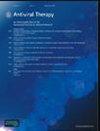Polaris Observatory—supporting informed decision-making at the national, regional, and global levels to eliminate viral hepatitis
IF 2.3
4区 医学
Q4 INFECTIOUS DISEASES
引用次数: 2
Abstract
Background: Tools to eliminate Hepatitis B and C have been available and in 2016, the World Health Assembly endorsed the Global Health Sector Strategy for Viral Hepatitis. However, the adoption of hepatitis elimination programs has remained slow. Research design: The Center for Disease Analysis created a universal registry, the Polaris Observatory, to support informed decision-making at the national, regional, and global level for HCV and HBV elimination. The observatory covers 110 countries for HCV and 135 countries for HBV and provides decision analytics, disease burden modeling, economic impact assessments, and training to help countries with their national hepatitis elimination programs. Results: By providing reliable and up-to-date country specific data and analyses, demonstrating the impact of decisions, and providing costing estimates of national programs, our collaborating countries are making informed decisions. Our economic impact analyses also helped countries fund their elimination programs and negotiate prices. Polaris Observatory is an example of impactful private–public partnership where funding by the John C. Martin Foundation allowed support for informed decision-making by public agencies and national governments who would not/could not support such programs on their own. Conclusions: The catalytic funding allowed the Polaris Observatory to demonstrate the utility of such a program resulting in other donors to support this work. The Polaris Observatory is now supported through a portfolio of funders while our work and outputs remain independent to continue support for viral hepatitis elimination by year 2030.北极星观察站——支持国家、地区和全球层面的知情决策,以消除病毒性肝炎
背景:消除乙型和丙型肝炎的工具已经问世,2016年,世界卫生大会批准了《全球卫生部门应对病毒性肝炎战略》。然而,消除肝炎方案的实施仍然缓慢。研究设计:疾病分析中心创建了一个通用的登记处,即北极星天文台,以支持国家、地区和全球层面的HCV和HBV消除知情决策。该观察站覆盖了110个国家的丙型肝炎病毒和135个国家的乙型肝炎病毒,并提供决策分析、疾病负担建模、经济影响评估和培训,以帮助各国实施国家肝炎消除计划。结果:通过提供可靠和最新的针对具体国家的数据和分析,展示决策的影响,并提供国家项目的成本估算,我们的合作国家正在做出明智的决策。我们的经济影响分析还帮助各国为其淘汰计划提供资金并谈判价格。北极星天文台是一个有影响力的公私合作伙伴关系的例子,约翰·C·马丁基金会的资助使公共机构和国家政府能够支持知情决策,而这些机构和政府本身不会/不能支持此类项目。结论:催化资金使北极星天文台能够证明这样一个项目的实用性,从而吸引了其他捐助者来支持这项工作。北极星天文台现在由一系列资助者提供支持,而我们的工作和产出仍然独立,以继续支持到2030年消除病毒性肝炎。
本文章由计算机程序翻译,如有差异,请以英文原文为准。
求助全文
约1分钟内获得全文
求助全文
来源期刊

Antiviral Therapy
医学-病毒学
CiteScore
2.60
自引率
8.30%
发文量
35
审稿时长
4-8 weeks
期刊介绍:
Antiviral Therapy (an official publication of the International Society of Antiviral Research) is an international, peer-reviewed journal devoted to publishing articles on the clinical development and use of antiviral agents and vaccines, and the treatment of all viral diseases. Antiviral Therapy is one of the leading journals in virology and infectious diseases.
The journal is comprehensive, and publishes articles concerning all clinical aspects of antiviral therapy. It features editorials, original research papers, specially commissioned review articles, letters and book reviews. The journal is aimed at physicians and specialists interested in clinical and basic research.
 求助内容:
求助内容: 应助结果提醒方式:
应助结果提醒方式:


